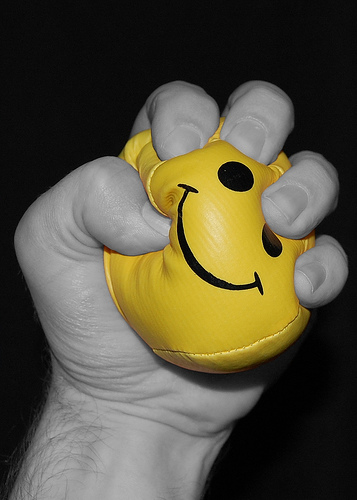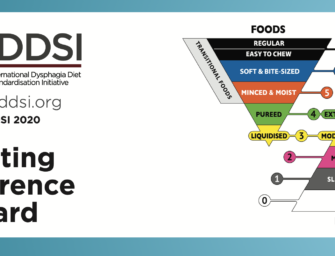Stressed Out!
Stress is an inevitable part of our lives, it’s sometimes good and sometimes bad. It can cause us to be more efficient, or it can simply make us go crazy. Let’s take a moment to discuss what stress is and how we can go about managing it.
Stress- the double edged sword…
To a certain degree, stress is needed in our lives. Basically, stress is a burst of energy that can manifest in many different forms as a result of good or bad things/situations in daily life; for example, changing jobs, getting married, pressure, holiday planning, etc. Good stress, such as going on vacation, can make a person feel energized and excited, whereas bad stress, such as being under pressure, can cause negative health effects.
Moderate amounts of stress can actually help improve memory, make us more effective in performing duties, and may enhance heart function as well as immunities. The trouble is when we are unable to control stress and the short term buzz becomes chronic, long term stress that affects our lives. When stress hormones remain in our system longer than 24 hours, negative effects can start to occur in our body. For example, long term emotional stress can cause high blood pressure, exhaustion, depression, and heart disease.
The Stress Response:
When our body experiences stress, it goes through a series of responses in three stages. Let’s take a closer look at what unfolds during a bout of stress…
Stage 1: Mobilizing Energy
Both good and bad episodes of stress, whether psychological or physical, cause the body to release stress hormones called cortisol, norepinephrine, and epinephrine (adrenaline). These hormones cause the heart to beat faster, our senses to sharpen, blood pressure to rise, and the release of blood glucose all to help us get ready for a “fight or flight” response. Essentially, this reaction is to help us survive. The chemicals released produce a sudden burst of energy in our body which helps us to act.
Symptoms of the Mobilizing Energy Stage: rapid breathing, increase heart rate, sweating, decreased digestion, butterflies, indigestion
Stage 2: Consuming Energy Stores
In this stage, the body starts to release fats and sugars. Many people turn to coffee, alcohol, and cigarettes as a short term fix to try to numb the feelings of anxiety and fatigue. People may also experience more negative thinking and memory loss, and may get the flu more often.
Symptoms of this stage: feeling driven, feeling anxiety and pressure, exhaustion, tiredness, fatigue (which leads to increased smoking, alcohol and coffee consumption), colds and flues, memory loss
Stage 3: Draining Energy Stores
The body’s need for energy in this stage increases to a point that is greater than the body is able to provide. If stress is not managed, you may experience personality changes, insomnia, and errors in judgment. In this stage, there is an increased risk of heart disease and mental illness.
Symptoms of this stage: ulcers, heart disease (high blood pressure, high cholesterol, etc), insomnia, personality changes, errors in judgment, mental illness
What can we do?
Stress is a matter of perception. To some, roller coasters are torture, but to others they are a thrill. To some, stress makes them meet deadlines, but to others it fogs their mind. The goal is not to get rid of stress altogether; rather, the aim is to manage stress and channel it productively. After all, stress is unavoidable and part of our “fight or flight” makeup; you never know when you’ll be chased by an animal and need to respond!
When we experience stress, the best thing to do is identify the stressors and use coping techniques. Try to be aware of what things/events/situations make you feel stressed. These are your “triggers,” whether it be traffic jams, finances, children, rude people etc, know what makes you tick!
Stress Management Techniques:
After you determine your triggers, try some coping techniques to reduce the bad effects of the stressors. Here are some approaches to try:
- TALK about your stress to friends, colleagues, or family members. Verbalizing your emotions can actually release some stress. You never know, people may be able to offer you some suggestions/solutions that may work.
- PHYSICAL ACTIVITY – this is a fantastic stress reducer! Go for walks, go for a run, stretch your whole body. Exercise makes the body and brain more resilient to stress and releases endorphins, a natural euphoric chemical that is like a morphine substance originating naturally in the body. This neurotransmitter produces feelings of well-being.
- FIND A HOBBY – take your mind off stress by playing sports, reading, painting etc. Take a holiday from your problems!
- BE REALSITIC, BE POSITIVE! – Try not to be hard on yourself. Refrain from talking/thinking negative about yourself. Steer clear from “I can’t, won’t, should, must” talk.
- AVOID PROCRASTINATING – Keep a schedule and always include your hobbies and leisure activities to keep life interesting
- MEDITATE
- CHANTING MANTRAS – this may not be the best option during a meeting… do this on your own time!
- BREATHING TECHNIQUES – consciously try to control your breathing. Here are a couple of breathing exercises to try:
1) Exhalation Breathing Technique:
a) Lie on your back, arms to your side
b) As you breathe in, raise your arms to the ceiling, and then move them all the way up and over your head to the floor while exhaling
c) Reverse the order – continue to do this several times. After doing this a few times, without moving your arms, inhale and exhale slowly.
2) Deep Breathing Exercise:
a) Slowly inhale through your nose
b) Expand your abdomen before you allow air into your lungs
c) When exhaling, reverse the process
d) Repeat for 3-5mins
- STRETCH!!
1) Exhale into the stretch, and inhale when you release
2) Breathe deeply and slowly, and DO NOT hold your breath
3) Optional: close your eyes when stretching to connect with your body
- GO FOR A WALK – link this with your B-fit physical activity goals!
- WATCH YOUR DIET – caffeine, alcohol, fats, sugar, and tobacco affect the way your body copes with stress. Try eating a balanced diet of whole grains, fruits and vegetables, and protein
- Set S.M.A.R.T. Goals – make sure you are realistic in your goals. Unrealistic goals add to your stress level and make you feel incapable. Make sure your goal is Specific, Measurable, Achievable, Realistic, and Time-limited.
- LAUGH!! – Laughter is a mechanism your body uses for natural stress relief. Rent a good comedy, read the comics, or talk with the funniest friend or colleague you know!
OFFICE ACTIVITY:
– On your own, practice some coping techniques like deep breathing exercises in your office or whole body stretching before, during, or after work.
– If you know a funny joke, share it with everyone at lunch time . . . Get everyone laughing!
Keep trying to be-merry and B-fit!
Photo Credit: bottled_void via Compfight cc










